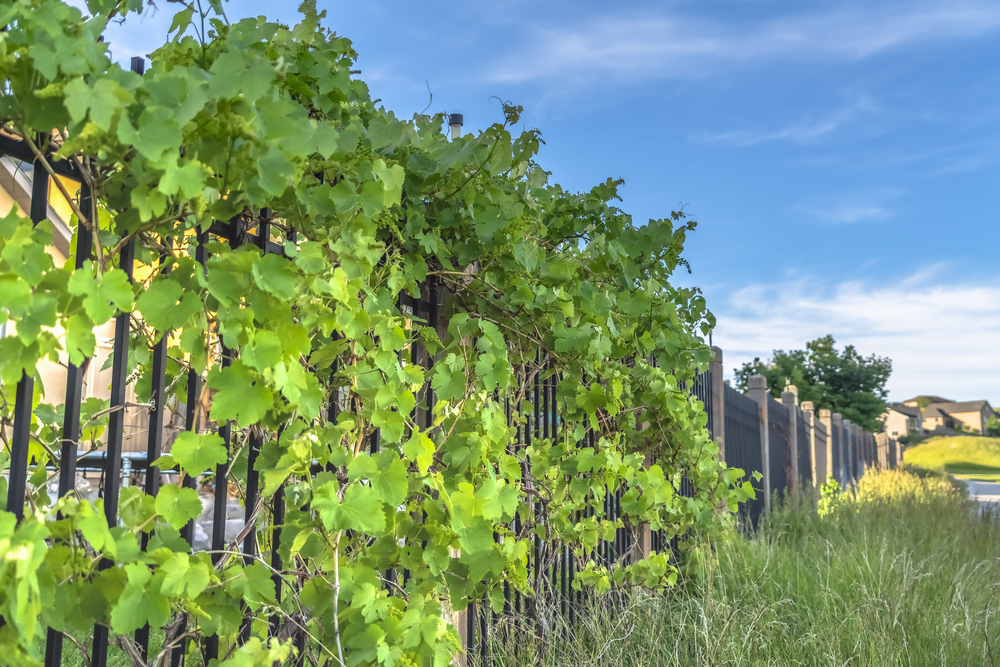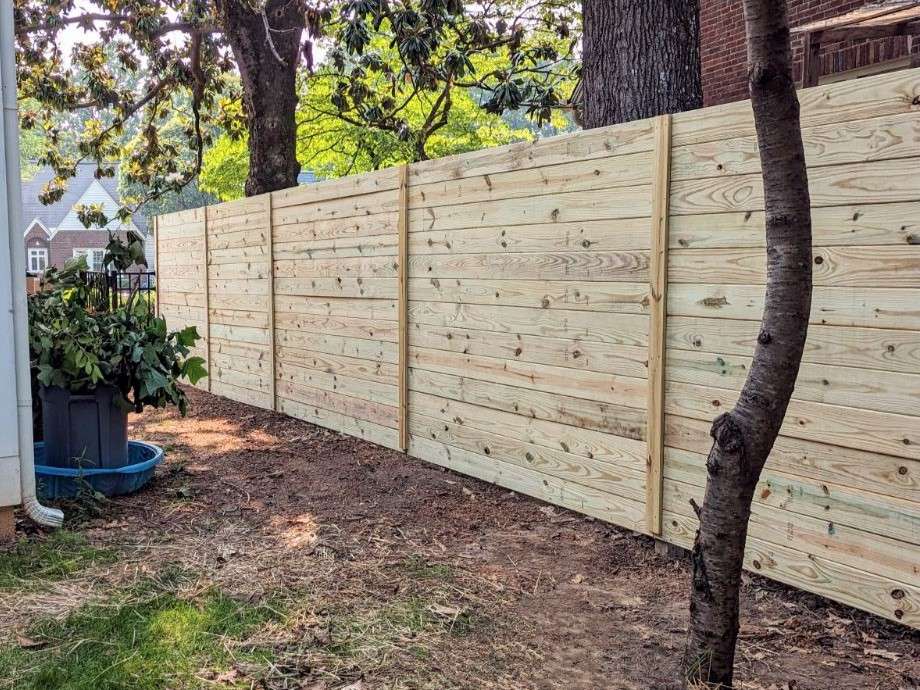All Categories
Featured

When setting up a fencing, picking the ideal material is crucial to balancing capability, looks, and budget plan. Wood, vinyl, and light weight aluminum are amongst the most generally selected secure fencing products, each with its strengths and disadvantages. This guide explores the advantages and disadvantages of these alternatives to help you make a notified decision.

Timber Secure Fencing. Pros:. Natural Elegance: Wood's timeless appeal can boost any type of building with its warm and timeless appearance. Personalized: You can repaint, stain, or carve timber to fit your design choices. Affordable: Timber fence is originally much more economical contrasted to a few other materials. Eco Friendly: As a renewable energy, timber is eco-friendly and frequently taken into consideration environment-friendly. Cons:. Maintenance-Intensive: Normal sealing, painting, or staining is needed to avoid damages from weather condition and parasites. Prone to Degeneration: Without proper care, wood can rot, warp, or fracture gradually. Shorter Lifespan: Typically, wood fencings last 10-15 years, relying on the kind of wood and maintenance. Wood is an excellent option for those who value looks and are eager to purchase regular upkeep to maintain its look and resilience.
Plastic Fence. Pros:. Reduced Maintenance: Plastic calls for minimal care-- simply periodic cleansing with soap and water. Weather condition Resistant: It does not warp, rot, or catch insect damage, making it very durable in various environments. Long life: Vinyl fencings can last 20-30 years with little to no repairs. Layout Selection: Available in a large range of colors, styles, and appearances, consisting of wood-like looks. Disadvantages:. Greater Preliminary Cost: Plastic fencings are extra costly upfront contrasted to wood. Vulnerability to Cold: In very cool weather condition, plastic can come to be vulnerable and breakable to cracking. Minimal Fixing Options: Matching substitute panels can be testing if damage occurs. Vinyl secure fencing is optimal for home owners trying to find a long-lasting, low-maintenance solution that offers modern flexibility.

Light Weight Aluminum Fencing. Pros:. Rust-Proof: Aluminum withstands corrosion, making it an excellent option for damp or moist settings. Sturdy: Despite being lightweight, aluminum is strong and can stand up to extreme climate condition. Reduced Upkeep: It calls for very little maintenance, usually just occasional cleaning. Long Life-span: Aluminum fences can last decades without considerable damage. Stylish Design: Typically used for decorative functions, aluminum secure fencing includes a streamlined, sophisticated want to residential or commercial properties. Cons:. High Preliminary Investment: Light weight aluminum fencings are amongst the costlier alternatives on the market. Less Personal privacy: The open layouts typical with light weight aluminum fence don't offer much privacy. Prone to Damages: While long lasting, aluminum can dent if hit with enough force. Aluminum is an outstanding option for property owners focusing on aesthetic appeals and resilience without calling for much maintenance.
Making Your Decision. When determining between light weight aluminum, plastic, or timber fencing, consider your priorities:
Timber fits those who appreciate a natural look and do not mind placing in upkeep initiative. Plastic is the finest option for those seeking a low-maintenance, weather-resistant remedy. Aluminum supplies streamlined design and resilient longevity but may do not have personal privacy. By meticulously evaluating these materials' features, you can choose a fence that complements your home while satisfying your visual and useful needs.
Latest Posts
Simplify Your Financial resources with WyHy's Coinstar Solution
Published Apr 19, 25
1 min read
Full Circle Strategic Marketing - Full-Scale Marketing Agency for Startups
Published Apr 19, 25
2 min read
Reliable Auto Care for All Makes and Models: Your Premier Auto Service in Montclare
Published Apr 19, 25
2 min read
More
Latest Posts
Simplify Your Financial resources with WyHy's Coinstar Solution
Published Apr 19, 25
1 min read
Full Circle Strategic Marketing - Full-Scale Marketing Agency for Startups
Published Apr 19, 25
2 min read
Reliable Auto Care for All Makes and Models: Your Premier Auto Service in Montclare
Published Apr 19, 25
2 min read